March many-weathers can be both spring and winter. I hope March for us will be the beginning of the vernal season of love, hope, beauty, light and wormth.
Spring will come, and flowers will bloom!
Yearning in Hope
The burst of daffodils in March summons us to a new beginning, encouraging us to move away from what
has hurt us or haunted us in the past, and inviting us to dream again.
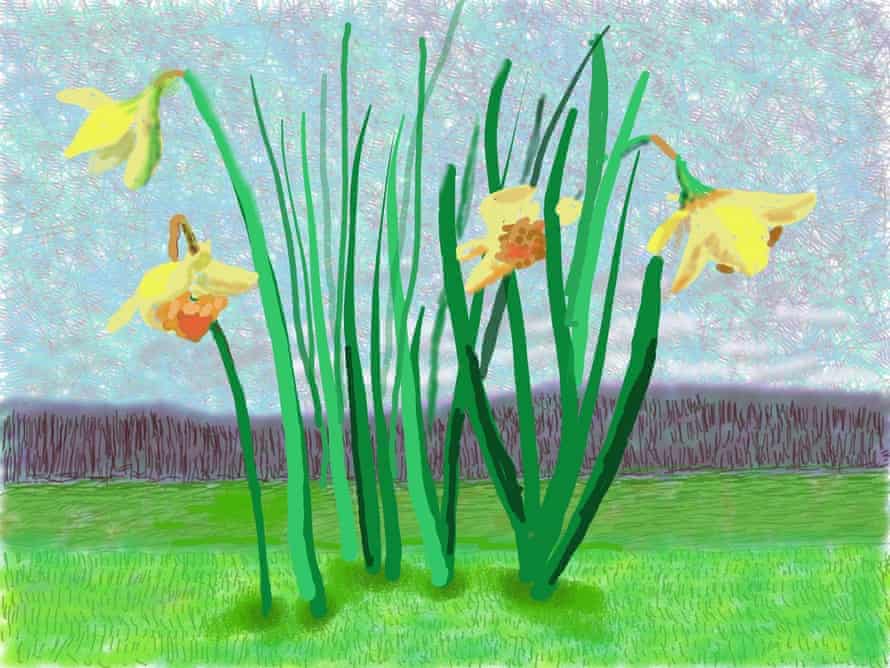
The iPad painting Do remember they can’t cancel the spring. Photo: © David Hockney/ Via The Guardian
‘Each month has its share of poetic musings, and March is no exception. As children, we learn that ‘March comes in like a lion and goes out like a lamb,’ leading us to expect bluster at the beginning of the month and balminess at the end. Here are a few March poems that offer glimpses of March beauty to help you remember ‘those March days when the sun shines hot and the wind blows cold: when it is summer in the light, and winter in the shade’ (from Great Expectations by Charles Dickens).’*
In his great inverted sonnet ‘Work Without Hope’, Samuel Taylor Coleridge paints a contrasting portrait of his despairing self in a landscape bursting with the hope of spring. This, for sure, is a timeless lesson and reminder to those of us who might otherwise despair of the current global pandemic, socio-political, and economic crises, ecological and environmental degradation, the rise of intolerance, poverty, inequality and the temporary triumph of unfounded fakism over facts and truth, to name but a few. What this poem shows is that endurance and resilience is hopeful, and that the smallest act of resistance keeps hope alive.
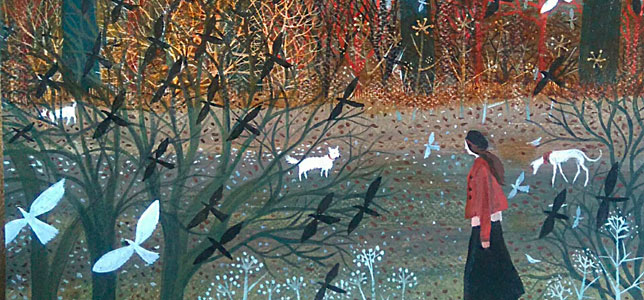
A painting by Dee Nickerson
‘All Nature seems at work. Slugs leave their lair—
The bees are stirring—birds are on the wing—
And Winter slumbering in the open air,
Wears on his smiling face a dream of Spring!
And I the while, the sole unbusy thing,
Nor honey make, nor pair, nor build, nor sing.
Yet well I ken the banks where amaranths blow,
Have traced the fount whence streams of nectar flow.
Bloom, O ye amaranths! bloom for whom ye may,
For me ye bloom not! Glide, rich streams, away!
With lips unbrightened, wreathless brow, I stroll:
And would you learn the spells that drowse my soul?
Work without Hope draws nectar in a sieve,
And Hope without an object cannot live.’
Moreover, March with its burst of hope and light, in the beautiful words of Emily Dickinson, is indeed, ‘the month of expectation’, when a welcome visitor brings colour back to a winter-bleached world.
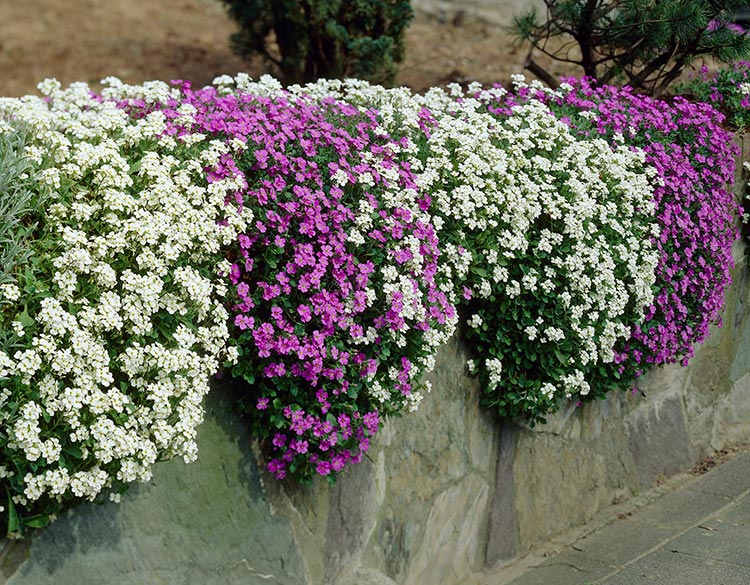
Beautiful Aubrieta in March. Photo: J. Parker’s
‘MARCH is the month of expectation,
The things we do not know,
The Persons of prognostication
Are coming now.
We try to sham becoming firmness,
But pompous joy
Betrays us, as his first betrothal
Betrays a boy.’
And then, with this beautiful poem, Emily invites March to arrive:
Dear March -- Come in -- by Emily Dickinson
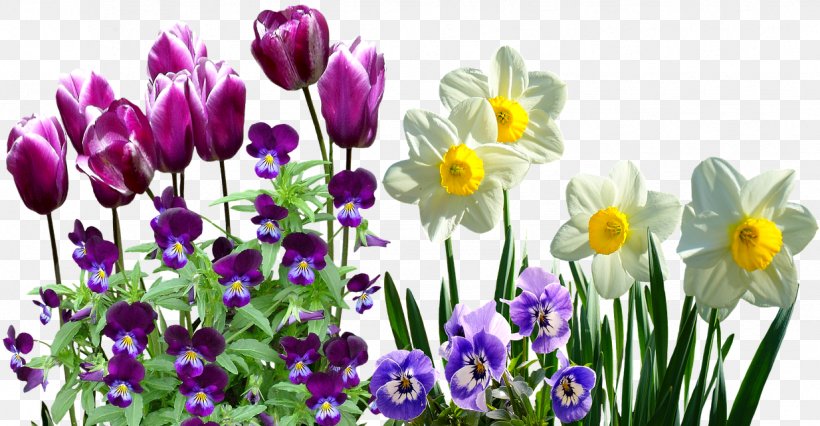
Photo:PNGWing
‘Dear March -- Come in --
How glad I am --
I hoped for you before --
Put down your Hat --
You must have walked --
How out of Breath you are --
Dear March, Come right up the stairs with me --
I have so much to tell --
I got your Letter, and the Birds --
The Maples never knew that you were coming -- till I called
I declare -- how Red their Faces grew --
But March, forgive me -- and
All those Hills you left for me to Hue --
There was no Purple suitable --
You took it all with you --
Who knocks? That April.
Lock the Door --
I will not be pursued --
He stayed away a Year to call
When I am occupied --
But trifles look so trivial
As soon as you have come
That Blame is just as dear as Praise
And Praise as mere as Blame --’
Lest we forget, March is also the season of love. This, for example, is so beautifully celebrated by Gary Snyder in his loveliest poem: Kyoto: March
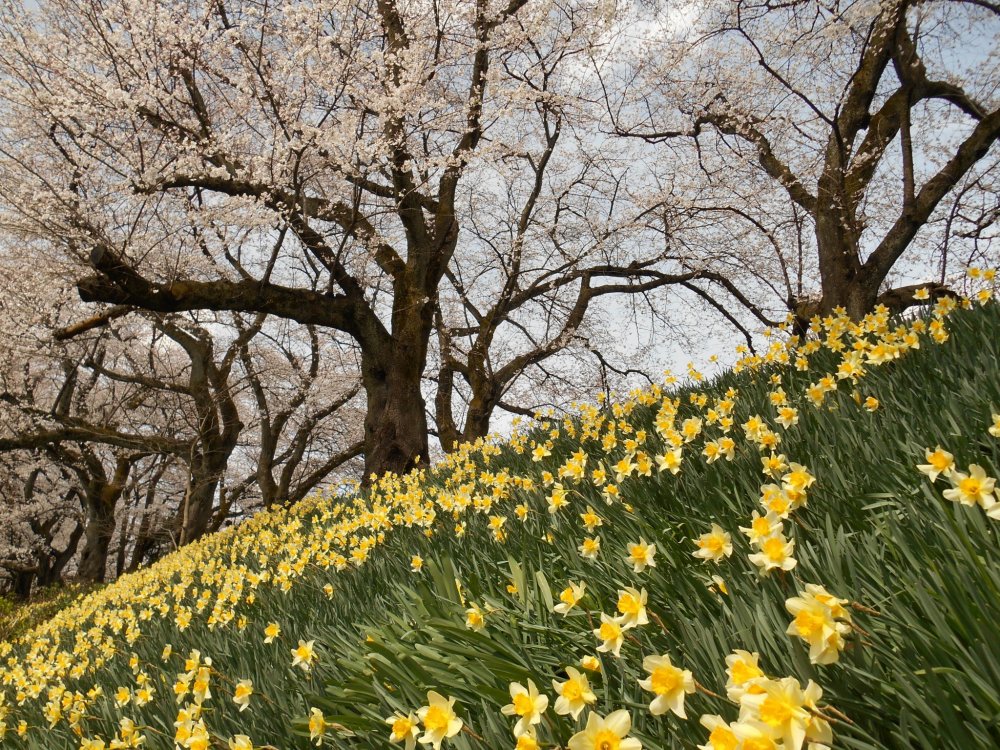
Photo:Japan Travel
‘A few light flakes of snow
Fall in the feeble sun;
Birds sing in the cold,
A warbler by the wall. The plum
Buds tight and chill soon bloom.
The moon begins first
Fourth, a faint slice west
At nightfall. Jupiter half-way
High at the end of night-
Meditation. The dove cry
Twangs like a bow.
At dawn Mt. Hiei dusted white
On top; in the clear air
Folds of all the gullied green
Hills around the town are sharp,
Breath stings. Beneath the roofs
Of frosty houses
Lovers part, from tangle warm
Of gentle bodies under quilt
And crack the icy water to the face
And wake and feed the children
And grandchildren that they love.’
And then, there are these two beautiful poems by William Wordsworth celebrating March:

Dancing Daffodils, a painting by John Nolan
‘Written In March’
‘The cock is crowing,
The stream is flowing,
The small birds twitter,
The lake doth glitter
The green field sleeps in the sun;
The oldest and youngest
Are at work with the strongest;
The cattle are grazing,
Their heads never raising;
There are forty feeding like one!
Like an army defeated
The snow hath retreated,
And now doth fare ill
On the top of the bare hill;
The plowboy is whooping- anon-anon:
There’s joy in the mountains;
There’s life in the fountains;
Small clouds are sailing,
Blue sky prevailing;
The rain is over and gone!’
‘TO MY SISTER’
‘IT is the first mild day of March:
Each minute sweeter than before
The redbreast sings from the tall larch
That stands beside our door.
There is a blessing in the air,
Which seems a sense of joy to yield
To the bare trees, and mountains bare,
And grass in the green field.
My sister! (’tis a wish of mine)
Now that our morning meal is done,
Make haste, your morning task resign;
Come forth and feel the sun.
Edward will come with you;–and, pray,
Put on with speed your woodland dress;
And bring no book: for this one day
We’ll give to idleness.
No joyless forms shall regulate
Our living calendar:
We from to-day, my Friend, will date
The opening of the year.
Love, now a universal birth,
From heart to heart is stealing,
From earth to man, from man to earth:
–It is the hour of feeling.
One moment now may give us more
Than years of toiling reason:
Our minds shall drink at every pore
The spirit of the season.
Some silent laws our hearts will make,
Which they shall long obey:
We for the year to come may take
Our temper from to-day.
And from the blessed power that rolls
About, below, above,
We’ll frame the measure of our souls:
They shall be tuned to love.
Then come, my Sister! come, I pray,
With speed put on your woodland dress;
And bring no book: for this one day
We’ll give to idleness.’
And then, not forgetting, there is this beautiful poem by William Cullen Bryant: ‘MARCH’
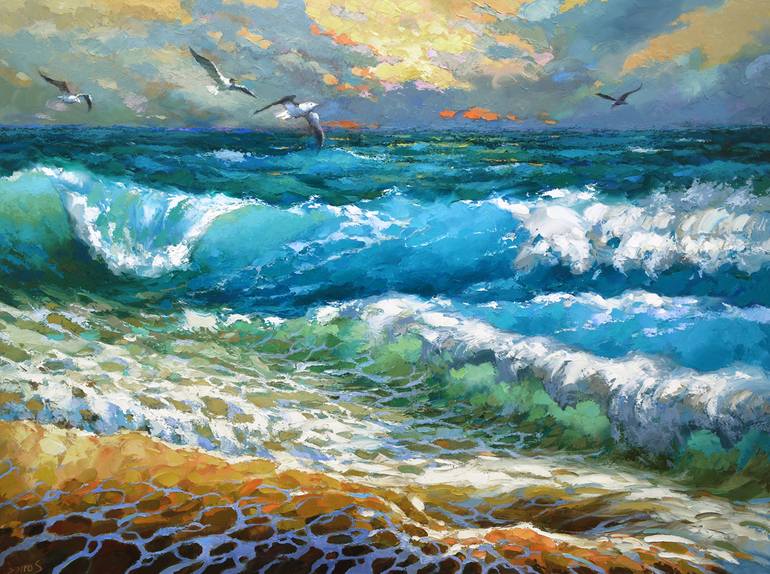
A painting by Dmitry Spiros
‘The stormy March is come at last,
With wind, and cloud, and changing skies,
I hear the rushing of the blast,
That through the snowy valley flies.
Ah, passing few are they who speak,
Wild stormy month! in praise of thee;
Yet, though thy winds are loud and bleak,
Thou art a welcome month to me.
For thou, to northern lands, again
The glad and glorious sun dost bring,
And thou hast joined the gentle train
And wear’st the gentle name of Spring.
And, in thy reign of blast and storm,
Smiles many a long, bright, sunny day,
When the changed winds are soft and warm,
And heaven puts on the blue of May.
Then sing aloud the gushing rills
And the full springs, from frost set free,
That, brightly leaping down the hills,
Are just set out to meet the sea.
The year’s departing beauty hides
Of wintry storms the sullen threat;
But in thy sternest frown abides
A look of kindly promise yet.
Thou bring’st the hope of those calm skies,
And that soft time of sunny showers,
When the wide bloom, on earth that lies,
Seems of a brighter world than ours.’
March 1 is also St David’s Day, The Patron saint of Wales
And what better way to celebrate this than with a poem by a Welsh legend, Dylan Thomas
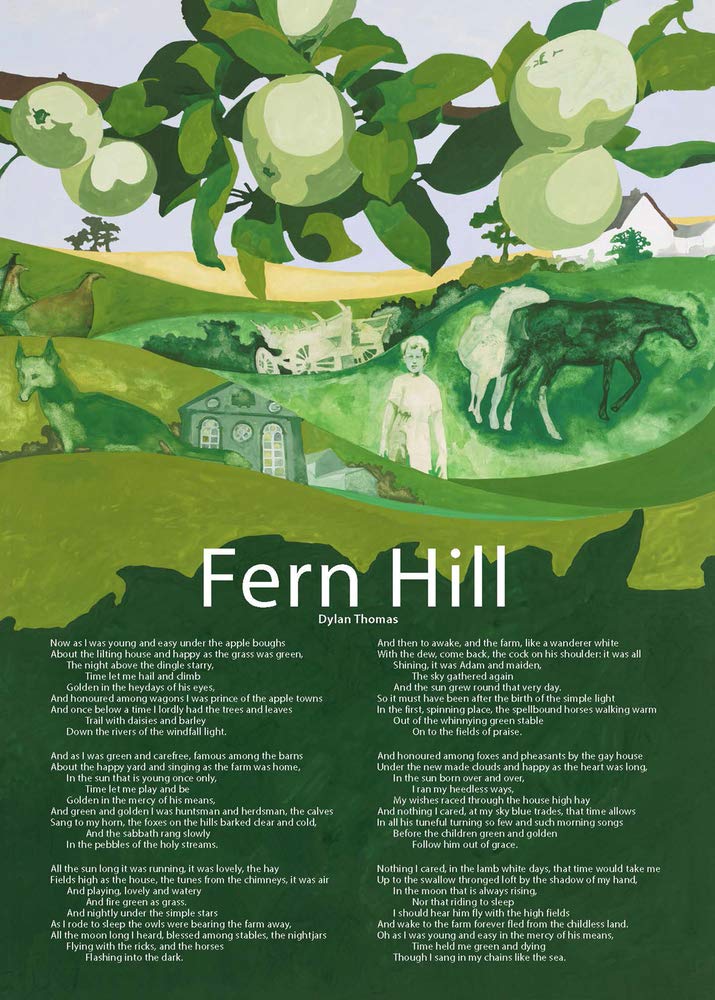
Photo: Amazon
Listen to Prince Charles reading Dylan Thomas' Fern Hill
...And then, finally, how can I forget the daffodils, my birth flower!
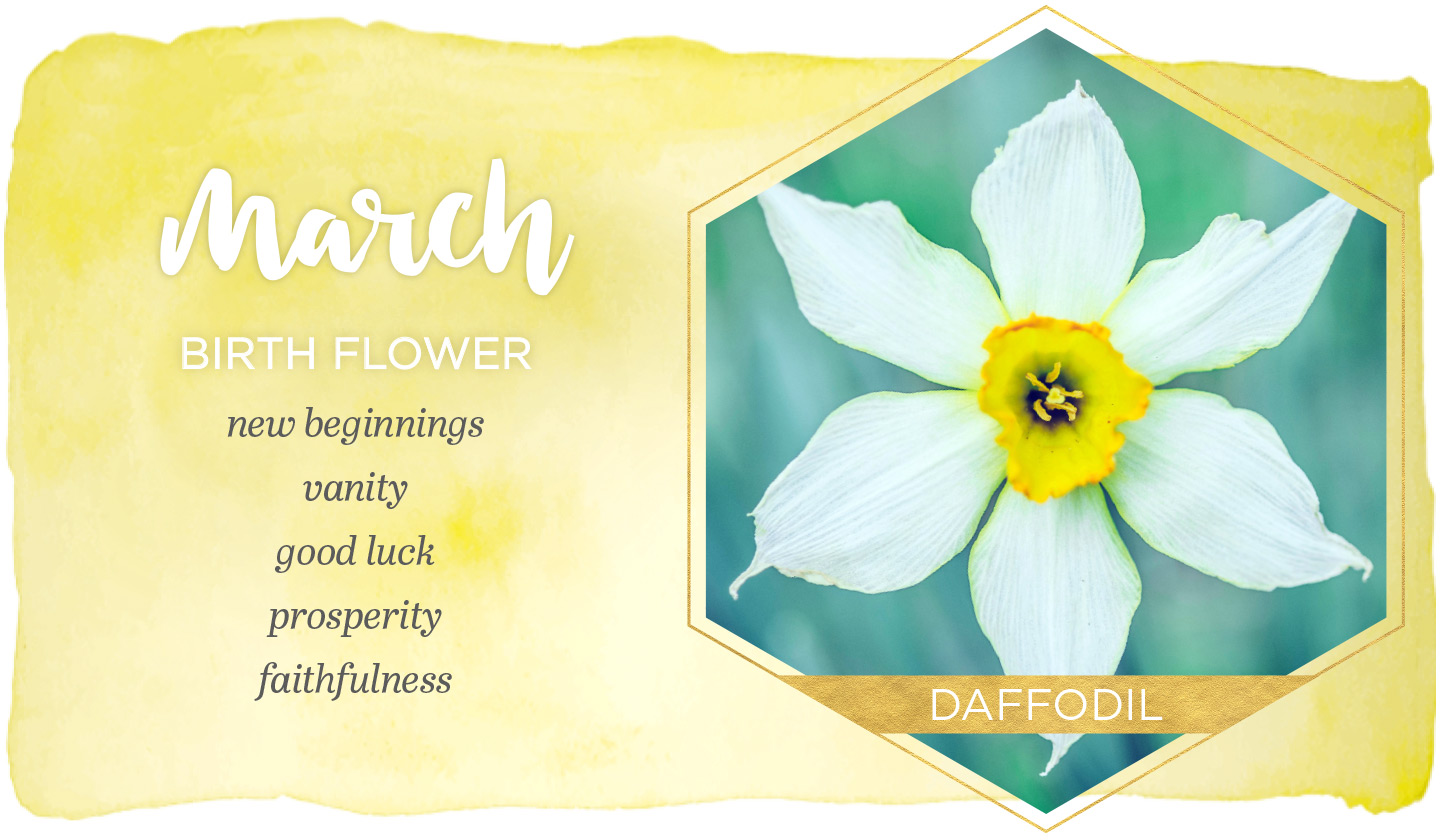
Photo: Pinterest
And a big thank you to William Wordsworth for the loveliest birthday gift anybody can have in March:
Celebrating the joyous Spring, Daffodils and my birthday with William Wordsworth
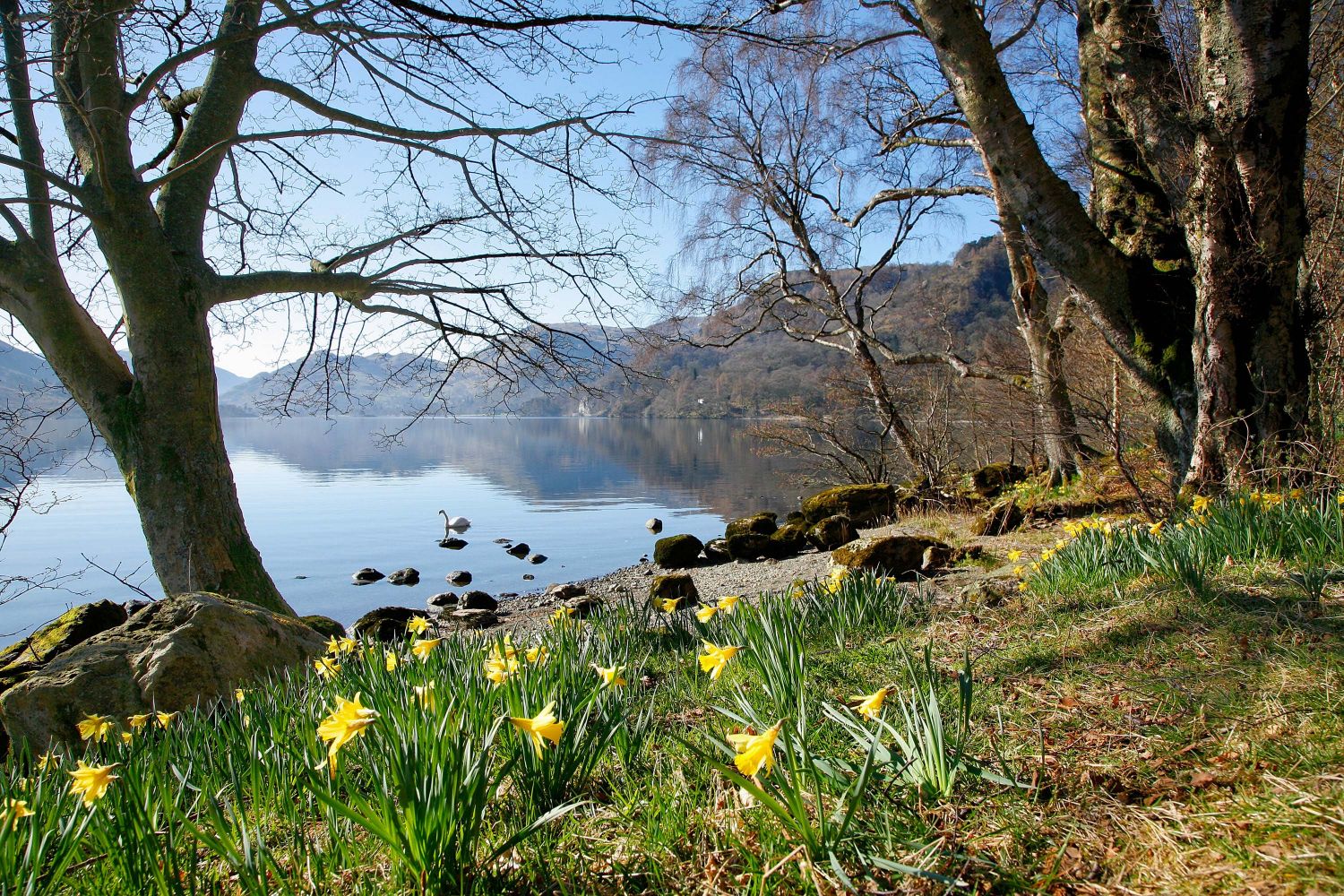
Daffodils At Wordsworth Point, Ullswater. Picture by Martin Lawrence Photography
'When William and Dorothy Wordsworth visited Glencoyne Bay on their way back to Grasmere after an overnight stay, it gave William the inspiration to write his most famous poem, - Daffodils. The daffodils are a wild variety and very dainty and neat. The sight of them on a carpet alongside the lake edge is quite spectacular.'
Flowers are blooming, birds are singing, the days are getting brighter. What better way
to sing the praises of Spring’s arrival than to read beautiful poetry.
Here is one of my favourite poems I would like to share with you: Of all the famous poems of Wordsworth, none is more famous than 'I Wandered Lonely as a Cloud'.
In this poem, Wordsworth says that, wandering like a cloud floating above hills and valleys, he encountered a field of daffodils beside a lake. The dancing, fluttering flowers stretched endlessly along the shore, and though the waves of the lake danced beside the flowers, the daffodils outdid the water in glee. He says that a poet could not help but be happy in such a joyful company of flowers. He says that he stared and stared, but did not realize what wealth the scene would bring him. For now, whenever he feels “vacant” or “pensive,” the memory flashes upon “that inward eye / That is the bliss of solitude,” and his heart fills with pleasure, “and dances with the daffodils.”
'I Wandered Lonely as a Cloud
That floats on high o'er vales and hills,
When all at once I saw a crowd,
A host, of golden daffodils;
Beside the lake, beneath the trees,
Fluttering and dancing in the breeze.
Continuous as the stars that shine
And twinkle on the milky way,
They stretched in never-ending line
Along the margin of a bay:
Ten thousand saw I at a glance,
Tossing their heads in sprightly dance.
The waves beside them danced; but they
Out-did the sparkling waves in glee:
A poet could not but be gay,
In such a jocund company:
I gazed—and gazed—but little thought
What wealth the show to me had brought:
For oft, when on my couch I lie
In vacant or in pensive mood,
They flash upon that inward eye
Which is the bliss of solitude;
And then my heart with pleasure fills,
And dances with the daffodils.'
On the 250th Birthday of William Wordsworth Let Nature be our Wisest Teacher
......
Related posts from our archives:
My Poem of the month (October): MORḠ-E SAḤAR (Bird of Dawn)
My Poem of the month (November): Reimagined Garden
My Poem of the month (December): The Emerging of a New Consciousness and Hopefulness
My Poem of the month (January) and our New Year’s Greetings
My Poem of the month (February): Let Hope and Healing Begin to Brighten the Covid Darkness
Finding sanctuary in poetry during lockdown
Reflecting on Life: My Childhood in Iran where the love of poetry was instilled in me
Poetry is the Education that Nourishes the Heart and Nurtures the Soul
......
